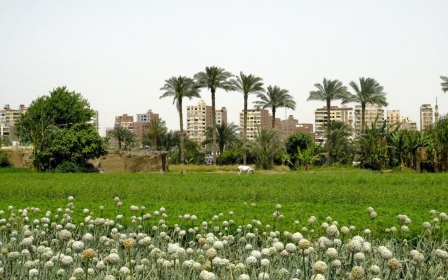Egypt's currency hits record low as IMF loan deal secured
Egypt's currency hit a record low against the US dollar on Thursday, reaching over 23 pounds to $1 as the country secured a new loan from the International Monetary Fund (IMF).
The rapid dip from the opening level of 19.67 EGP to the dollar came after the central bank raised interest rates by 200 basis points as a part of a new exchange rate regime.
The central bank said it was set on intensifying economic reforms, and had "moved to a durably flexible exchange rate regime, leaving the forces of supply and demand to determine the value of the EGP against other foreign currencies".
The policy shift came in a bid to secure a new loan from the IMF after Egypt's economic woes deepened due to the war in Ukraine. The fund has long been urging Egypt to allow greater exchange rate flexibility.
Against the backdrop of the 15 percent currency depreciation, the government said it had clinched a $3bn loan agreement with the IMF over the next three years and eight months.
The IMF confirmed the deal and welcomed Egypt's exchange rate regime changes and commitments to boosting social protections.
"The commitment to durable exchange rate flexibility going forward will be a cornerstone policy for rebuilding and safeguarding Egypt's external resilience over the long term," the IMF said in a statement.
The central bank had allowed the pound to depreciate by 14 percent in March, and the currency had been slipping more gradually in recent weeks ahead of Thursday's sudden fall.
In March, the pound was trading at 15.6 to the dollar. The central bank then raised interest rates for the first time since 2017, allowing Egypt's currency to fall sharply in an attempt to secure dwindling foreign exchange reserves.
Ukraine war fallout
Egypt has been one of the countries in the Middle East and North Africa hardest hit by the Russia-Ukraine war. It is the world's largest importer of wheat, with almost 80 percent of its supply coming from Russia and Ukraine last year.
In its statement on Thursday, the bank said the conflict had "dire economic ramifications" and consequently led Egypt to weather large capital outflows.
The tourism sector, which employs 9.5 percent of Egypt's workforce, is also reliant on Russia and Ukraine, from where a third of all the tourists who visited the country in recent years have come.
The central bank also said on Thursday that by December it would gradually phase out a rule that mandated the use of letters of credit for import finance.
The rule, an effort to preserve scarce dollars, had caused a major slowdown in imports of everything from consumer goods to industrial components, and had left some basic commodities stuck at ports.
In May, MEE reported that Egyptians were stockpiling US dollars and buying gold, in order to diversify their investments following the hike in interest rates and the fall in the pound.
Middle East Eye delivers independent and unrivalled coverage and analysis of the Middle East, North Africa and beyond. To learn more about republishing this content and the associated fees, please fill out this form. More about MEE can be found here.





